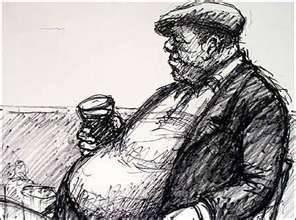LIFE LIVED AS A BEER BELCH
Not long ago, (1/12/12) I wrote about the trend toward mediocrity in American society as decried by Bernard Berenson and Philip Roth, among others. Apparently the cry is growing louder than I realized and the threat more real than I imagined. The columnist Harry Eyres revives the warning as he contemplates the country’s direction. Having recently finished “Treblinka: A Survivor’s Memory,” a World War II memoir by Chil Rajckman, he reflects upon the efficiency with which these atrocities were inflicted. Thousands upon thousands of Jewish prisoners were brutalized by those whose barbarous acts in turn brutalized them, leaving them empty and without the capacity to empathize. Bereft of emotion, those who ran the camps became nothing more than killing machines. Eyres’ concern is that we should do everything in our power to resist this dehumanizing effect in our own society.
His solution is to embrace the arts which are the outpourings and reminders of our humanity:
“When we discern depth in a work of art, we must also be recognizing it in ourselves. Appreciating art isn’t just about looking and listening with the clever brain, spotting surface connections, influences, iconography and so on. It is also about feeling, about a deep resonance and consonance.” (“Plan C for Humanity” by Harry Eyres, “Financial Times” 1/7/12)
Eyres warns that not any outpouring will do, however. He decries contemporary artists who want either to shock us — which he argues results in mind-numbing experiences — or who take a nihilistic approach and wish “to deny the possibility of human feelings.” (Eyres, pg. 18) Speaking against this new breed, he accuses them of being banal and warns that our glorification of the talentless will leave us in a sorry state where we become “not so much … hollow men and women as shallow ones.” (Eyres, pg. 18)

(courtesy: bbc.co.uk)
I’m not sure how to heed the warnings from men like Berenson, Roth and now Eyres. I know the ancient paintings in the caves of Lascaux were done for spiritual reasons and to commemorate important moments in the struggle for human survival. I also know that today much of art’s connection to the vital aspects of our lives is almost nil. Now days, art is valued in proportion to its ability to attract money. Shock and awe become spectacles meant only to dazzle and the result is that we cheapen and coarsen of our sensibilities. At the risk of sounding like an elitist, I agree with Eryes. There must be more to art, and thus life, than the satisfaction of a beer belch.